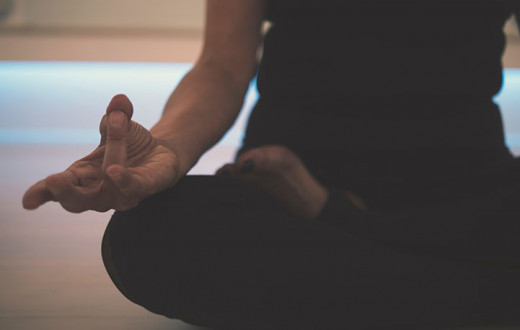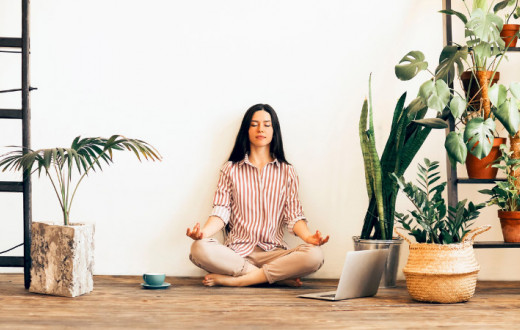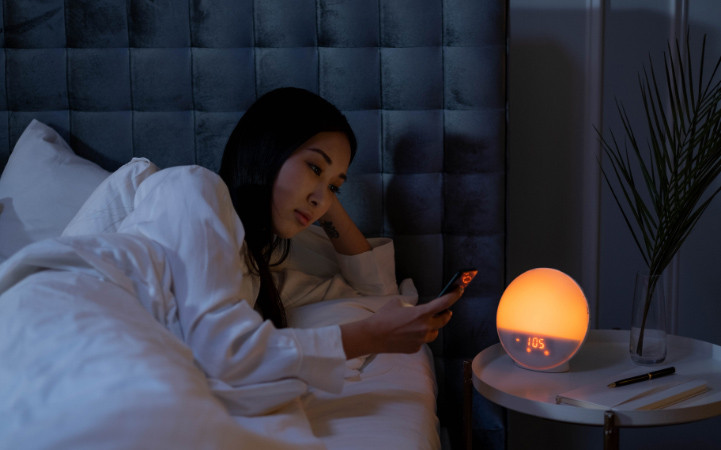
After a long day, all you want to do is unwind and enjoy some entertainment. Maybe you curl up in front of the TV or play your favorite video game until it’s time to go to bed. You may find yourself scrolling through social media or watching entertaining videos on TikTok or YouTube. Before you know it, it’s late and you need to catch some Zs, so you put your phone on your nightstand and try to drift off into dreamland. But, whether you realize it or not, your evening screen time can have negative effects on your sleep patterns.
Disconnecting from electronic devices for a few hours before bed can benefit your health in a number of ways. This article will reveal the connection between device use and poor sleep, as well as some tips for a good night’s sleep!
Topics covered:
- How screen time before bed impacts sleep
- Ways to avoid screen time before bed
- Improve your sleep quality with The Art of Living
How screen time before bed impacts sleep
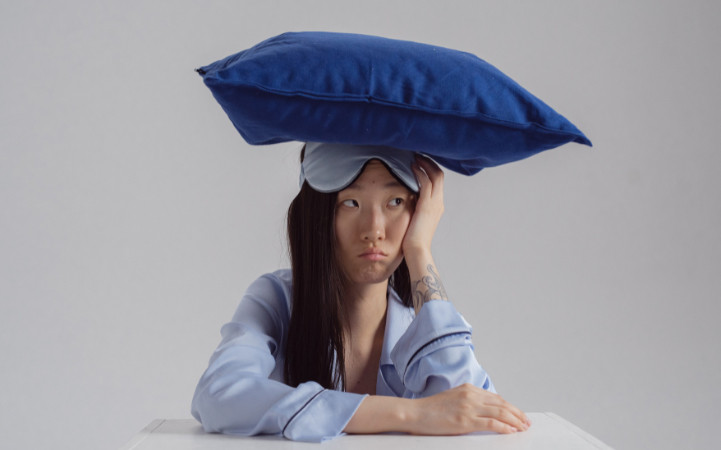
Using electronic devices, such as your phone, too close to bedtime affects your sleep quality and even how you feel the next day upon waking.
The main reason has to do with your circadian rhythm, the internal clock that controls your sleep-wake cycle. Blue light exposure tricks your brain into thinking it’s daytime, which delays your brain’s production of melatonin. This hormone is essential for quality sleep because it induces sleepiness, and without sufficient levels, you’ll likely feel alert and unable to fall asleep.
Of course, not all technology use has the same effects on your brain. For example, listening to relaxing music on your phone while you get ready for bed may not affect sleep at all. Meanwhile, social media use and texting are more active forms of screen use and stimulate your mind.
For some people, just having their phone nearby while they’re trying to fall asleep can pose a distraction, especially if they are anticipating a message or notification. In a dark room, any notification your smartphone receives creates a bright light that may attract your curiosity and keep you alert.
Having your smartphone nearby, such as under your pillow or on your nightstand, also makes it more likely that you’ll be woken up while you sleep. Depending on where you place your phone at night, you may feel or hear the buzz of each alert.
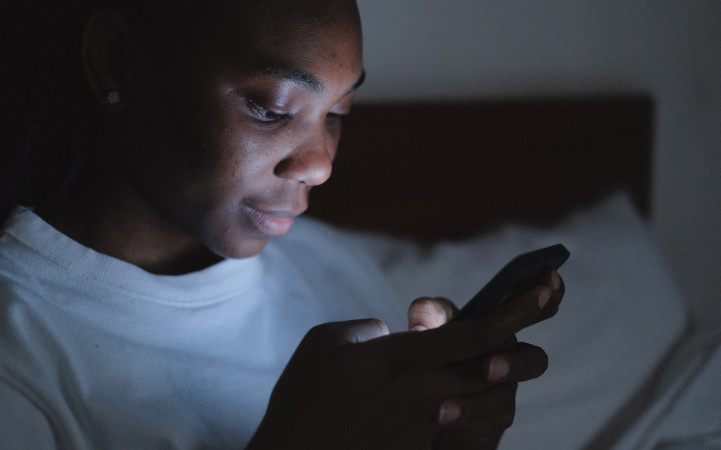
Even if your phone isn’t a distraction, the content you consume right before bed can impact your mood. Disturbing news stories or controversial topics on social media or on the news can stir up your feelings and prevent you from relaxing. On the other hand, good news can leave you wide awake and your mind racing.
This is actually a subtle secret of the mind: that the last thought you hold on to before sleep can in turn become the first thought you wake up to. This in turn sets the tone for your day. So one valuable practice is to cultivate gratitude right before going to sleep. Many studies have shown how gratitude improves your overall level of happiness and quality of life.
Back to phones: ultimately, using your phone or other electronics isn’t the best idea if you want to get enough sleep every night. The longer it takes you to fall asleep, the fewer total hours of sleep you get. Not only does poor sleep quality lead to detrimental side effects, but it also means less REM sleep, which is crucial for memory and learning, emotional regulation, and waking up more rested.
In fact, sleep research shows that your overall health is affected by your sleep duration, and brain fog, grogginess, and even poor judgment are common when you don’t get a good night’s sleep.
Ways to avoid screentime before bed
If you’re used to having your mobile phone with you at all times, it can be a challenge to limit your screen use before bed. However, it’s not impossible! With a consistent bedtime routine, you’ll find that it becomes easier and easier to prioritize sleep hygiene. Keep reading for some tips that can help.
Leave devices in another room
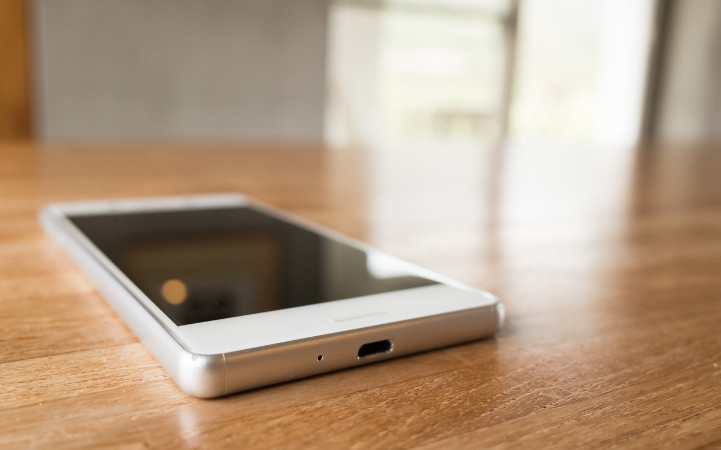
We’ve all heard the old adage “out of sight, out of mind”, and that’s especially true when it comes to our cell phones, laptops, and other electronic devices. If you have your phone next to you, you’ll find it a lot harder to stop using it before bed.
Your best bet is to power all your devices down (which is actually good for them!) an hour before bed and disconnect completely from technology. Instead of charging your devices on your bedside table, put them in another room where you won’t be tempted to use them. If you are especially addicted to your phone, you may even consider installing an app that locks your phone for a certain amount of time.
Practice breathwork
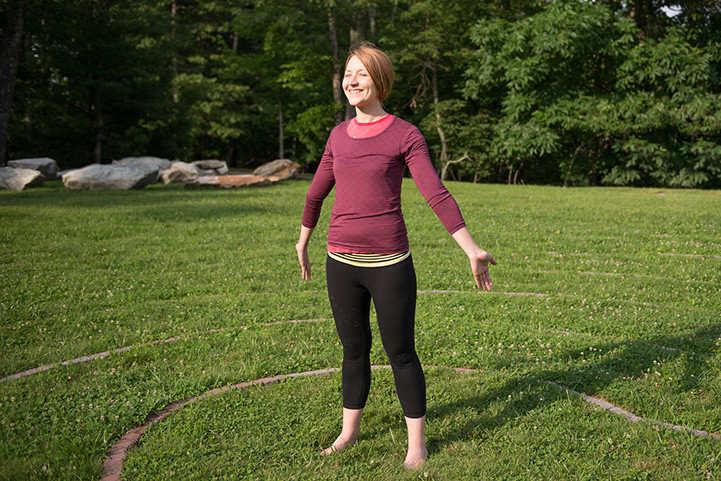
You probably don’t give much thought to breathing. After all, it’s an automatic process that your body does all by itself. However, when you feel stressed or anxious, your breathing is affected. The short, shallow breaths you take aren’t nearly as beneficial as deep ones that deliver more oxygen to your body. That’s why taking the time to practice conscious breathing can lead to many benefits, especially before bed.
Breathwork can calm your mind and body and restore balance. It helps you release stress hormones, feelings of anxiety, and tension in your body. As a result, you’ll find it easier for you to slip into a deep sleep.
Self-guided breath awareness isn’t complicated, and you can do it while lying down, which is perfect for preparing for bed. Start by observing your breath as it flows in and out of your nostrils. It should be an effortless process in which you gradually extend your breath in a comfortable rhythm.
Incorporate guided relaxation
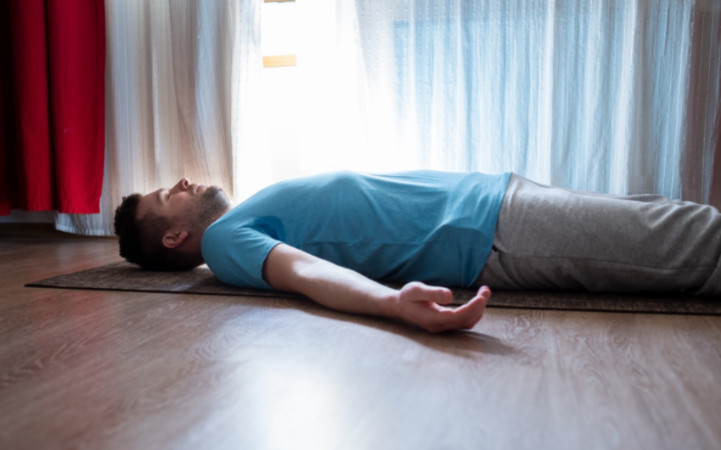
Guided relaxation methods are great for your overall well-being and help you achieve better sleep quality. There are various practices you can use to help you prepare for sleep, including guided meditations and Yoga Nidra.
You can use guided meditations anytime, but they are especially helpful before bed — particularly those designed for sleep. When you are stressed out and need some relief, put one on and follow along. Of course, guided meditations require the use of an electronic device, so if you want to incorporate this practice into your bedtime routine, do so before you power down your devices.
Yoga Nidra is another method you can use to prepare for sleep. It involves bringing awareness to each part of your body one by one until you are completely relaxed. This is a great way to transition from wakefulness to sleepiness.
Establish a device-free routine

Making changes to your nighttime routine can be a challenge, especially if your current habits aren’t particularly conducive to healthy sleep. We recommend coming up with a consistent schedule you follow at the same time every night. It should prepare you to sleep and distract you from screens.
Feel free to adapt your bedtime routine according to your needs, but it might look sometime like this:
- Power off electronic devices two hours before bed
- Have a cup of relaxing herbal tea while reading a book
- Do your skincare and dental hygiene routine
- Practice breathwork, guided sleep meditation, or Yoga Nidra
Eventually, your nighttime routine will be automatic and you’ll no longer have the urge to use your phone or electronic devices.
Improve your sleep quality with The Art of Living
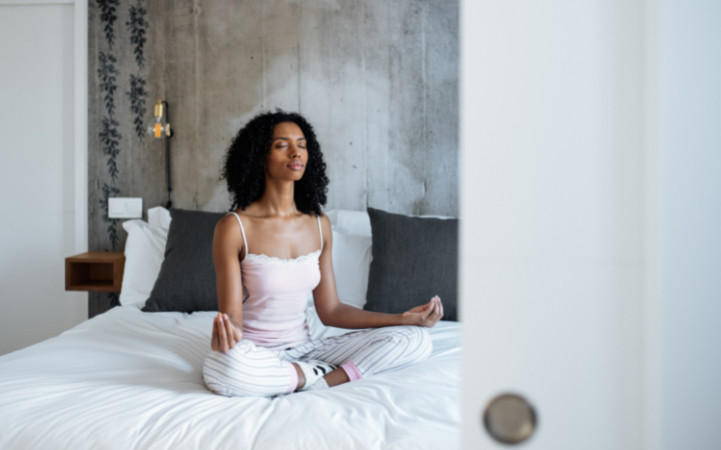
There are so many reasons to forego screentime before bed! If you want to prevent electronic devices from interfering with your sleep duration and quality, we invite you to implement the tips in this article. But, you don’t have to stop there!
The Art of Living has resources you can use when you need to destress, such as the guided meditations on our Journey app. Instead of using meditation as a quick fix, why not make it a daily habit?
By doing so, you can unleash the power of your practice and get to the bottom of some of the issues that interfere with sleep, including stress. Rather than fix these issues, you can prevent them and improve the overall quality of your life. Browse our courses to find a practice that works for you!
Create a calming evening transition
Reducing screen time is a great start—now give your mind an intentional way to settle. The Sleep and Anxiety Protocol guides you through practices that soothe the nervous system, reduce mental stimulation, and help you unwind without relying on digital inputs.
Build a calming bedtime ritual that leads naturally into deeper, more rejuvenating sleep.
You may also enjoy reading Meditation for Better Sleep: How to Tuck Your Mind Into Bed




